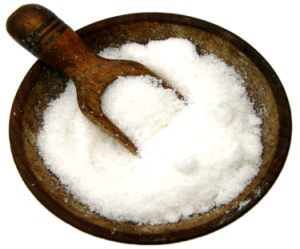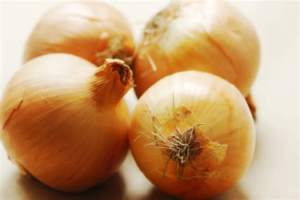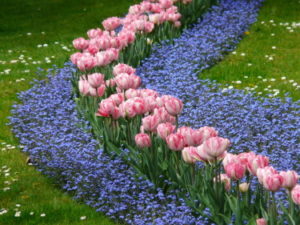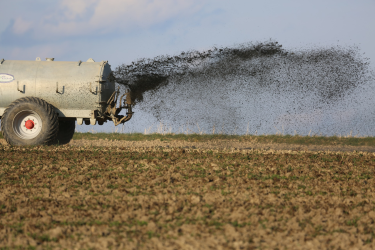
Manure; a crucial agricultural aspect.
Agriculture plays an essential role in the world’s economy. It is the backbone of human existence. Cultivation of plants over the world is the measured source of prevalence as it is not only the source of food but also helps in the capital built up of countries.
So making the agricultural sector strong will definitely lead to the prosperity of the states. Every aspect of agriculture has a significant impact on the growth of plants and crops. And one of the attention-worthy things to look after is the quality of manure you’re using in the cultivation field or garden.
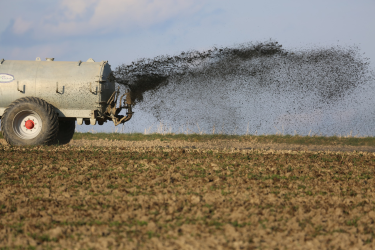
To understand, what manure is, is no rocket science. It is simply an organic fertilizer in the plants growing field.
How does manure affect soil fertility?
As stated earlier, manure is commonly composed of animal or human waste. The nutrients and organic compounds that are released along with the faces contribute to the nutrient that enriches the soil. Once the dung is incorporated into the ground where the plants are to be cultivated or grown, the nutrients are realized.
These nutrients help in nourishment and healthy growth of the plants. Manure also helps in carbon fixation in the soil and increases soil carbon, increasing the energy availability of the plant. Manure contains almost all the essential elements like nitrogen, potassium, phosphorus, and other micro nutrients too.
These micro nutrients, when consumed by the bacteria in the soil, produces a byproduct of their own called humus. Humus helps in the fertility of the land by holding more water and making it available to the roots of the plants. It also decreases soil fertility hence increasing the productivity of the soil.
General types of manure available: Manure is available in many varieties, but they are generally grouped into three main types
Green manure, as imposed by the name, is the manure prepared by green plants, herbs, and shrubs. They are plowed in the field and increase soil fertility by adding their nutrients to the soil. Green plants also have Rhizobia bacteria in them, which fix nitrogen in the roots of plants.
Farmyard manure; farmyard dung is the material coming from plants that are converted to fertilizer like straws etc. these materials are enriched by making them absorb the waste and urine of the animals. This farmyard manure, if converted to liquid form, is known as slurry.
Compost manure; the organic material, when subjected to decomposition for an extended period, gives rise to compost. Compost increases the nutritional value of soil. Compost conditions the soil and avoids soil erosion and stream reclamation problems.
Types of natural dung for the garden:
Fertilizer comes in a variety of models based on forms, animals from which it is obtained, nutrient composition, and synthesis process.
Based on forms, we have farmyard manure (FYM) and farms slurry. Based on animals, the fertilizer can come from horses; cattle, sheep, chickens, pigs, cows etc.animal manures are used according to the soil conditions and the plant requirements the crops and plant requirements.
The crops and plant requirements should be evaluated before adding manure to the soil. Some are suitable for massive agricultural land forms and, some are suitable for gardens. The best type of fertilizer that can be used in the garden to enhance the plant growths is a horse and chicken manure.
Types of manures suitable for gardens:
Cow manure is an excellent source of nitrogen and carbon. It is the most widely used manure in garden settings. It is highly enriched with nutrients that help in superior plant growth. The light and soft texture of cow dung makes it easy to compost. Cow dung takes a relatively shorter time to compost. The expected composting time of cow manure is six months.
Horse manure is another excellent garden fertilizer. Many gardeners prefer using horse manure for their plant’s horse manure is also high in nutrients and helps in the nourishment of the plants. One distinguishing feature of horse manure is its hardness.
Horse manure is a little harder and more abundant. The factor for the hardness of horse manure is the fact that horses can’t digest the seeds and pass them in the feces; hence horse manure takes a longer time to compost.
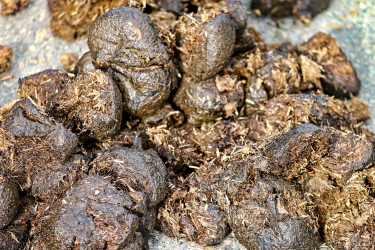
Chicken manure is another excellent pick for gardens. The high content of nitrogen and phosphate in chicken dung makes it the best for gardening purposes.
The key to getting the perfect garden manure is to give your fertilizer proper time to compost. The ideal time for composting varies according to the animal you’re taking your fertilizer from. Like, if you’re opting chicken manure, it is easy to compost while horse manure tends to be the extensively harder one getting the longest time to compost.
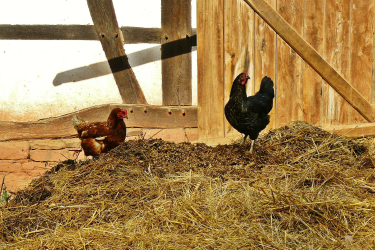
How can you use compost manure as mulch?
Manure can also be used as mulch, i.e., for moisture retention of the soil. The mulch is a thick blanket of fertilizer that is applied over the ground and serves various functions.
It enhances soil fertility and increases the quality of the all. Using manure as mulch can have many benefits for the land and ultimately to the plants. The fertilizer, when applied as mulch h,h, works as slow, releasing tablets. Just like the tablet releases the medicine after selected intervals, the mulch releases a controlled amount of nutrients to the soil.
Mulch also works as an insulator and protects the plants from temperature fluctuations. Mulch also helps in the further decomposition of the manure making more nutrients available to the soil. Organic content increments result in the increased plant’s health and better crop yield.
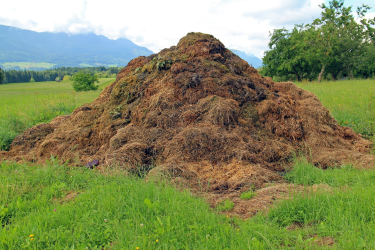
When should you add manure to the garden?
When it comes to adding manure to your garden, there are specific guidelines you should follow. You should look for the specifications of the fertilizer like the animal it has come from, the age of the manure, and the composting time it has gone through. Fresh manure as it sounds from the name seems to be new and an excellent pick for the garden. But it is not!
Fresh manure is not suitable to be added in the garden as it can risk the plants and can incorporate the growth of E.coli and salmonella (bacteria) to the soil. These bacteria can cause serious illnesses; hence the fresh manure is not the best choice for your garden fruits and vegetables. So the best time to add manure to the garden is after composting. Heat dried manures are best for gardening purposes, and they reduce the risk of contamination and reduces health risks.
Advantages of using manure as fertilizers:
The fertilizer, being an organic and natural product, dramatically improves the plant health and well-being of the crops and the humans in the long run. The advantage of organic manure are listed below:
Manure is loaded with an immense amount of nutritional ingredients, which macro and micro nutrients, which, when released in the soil, increase fertility, soil structure. It also helps in water and nutrient locking in the soil, which builds up the plant health.
The nutrients take up all the space around the roots that there is no chance of any chemical, toxins, or any unwanted salt built up around the plant that can damage the plants.
Manure, being naturally driven, is super environment-friendly, and it also is biodegradable and does not harm the environment in any way.
The price range of natural manure is variable. Good quality manure can be quite pricey, but when it comes to quality, it is all worth it. Moreover, you can also opt for the slurry according to your budget and the type of fertilizer you are looking for in your garden.
The natural composition of manure prevents the soil from common problems like leaching and soil erosion.
Manure helps to aerate the soil and improved the soil conditions.
Manure decreases the likelihood of bacterial contamination and kills weeds and unwanted pests from the plants.
The disadvantages of manures:
Manure, on the one hand, has many benefits and advantages. But at the same time, it also has some setbacks and obstacles. Organic fertilizers like manure are all-natural and seem to be the perfect choice for every kind of land. But in reality, sometimes the natural manures are not competent enough to be used as agricultural fertilizers. Some of the setbacks of dung are listed here:
Natural manure, as compared to the synthetic fertilizers have low nutrients; this is because synthetic fertilizers are human-made and are customized according to the needs and requirements of the plants. Synthetic fertilizers are loaded with many nutrients, and hence they are sometimes extra nourishing.
Manure doesn’t enhance the pigmentation of the crops, while synthetic chemical fertilizers have the pop of color needed for this purpose.
Manure production is a complex and time taking process. It takes a long period to create the perfect manure for your garden, while fertilizers available at the market are much more natural to use and gives the same results as that of the natural one.
Just because dung is natural, it will not always be opted for the agricultural needs. Sometimes organic products can also mess up the outcomes of the gardens; hence it is necessary to carry out a precise study before getting your hands on any of them.
Present and future advancements related to manure:
Science has outgrown quite exceedingly that everything from the simplest to the most complex one is subjected to progress to make the most out of everything. And in an attempt to this, researchers have done experiments to modernize even the simplest things. Manure is not an exception in this case. Many studies and advancements have taken place to upgrade the use of fertilizer; some of the improvements are listed below:
Manure as a biofuel; The nutrients, primarily carbon, present in manure Can produce an unimaginable amount of energy. This is done with the help of anaerobic bacteria present in the slurry. The bacteria can produce biogas, which in turn produces heat and electricity.
Dung as a fiber source; fertilizer is an excellent source of fiber as it is the undigested food material, and this fiber from the unused mature can be used in making pottery, paper, cardboard, pencils, and many other commodities.
Dung as a source of solids: when the liquid content of manure is removed, the remaining solid is utilized by farmers as bedding for animals in animal farms and shelters. Many farmers use the solids as cow beds and save millions of dollars every year.
Concluding thoughts:
Manure is a natural organic material obtained from plant, animal and human waste and excreted feces. It is purely organic in nature and helps in the betterment of soil by increasing soil fertility and adding many important nutrients to the soil. Dung plays a vital role in gardening and helps the plants to grow in a sustainable environment by increasing the plant and crops yield to multiple folds, but choosing the right kind of manure is a crucial step to take. In this article, we have highlighted all the aspects of manure to help you get the complete knowledge of manure and make your decision-making if choosing the right dung easy.

